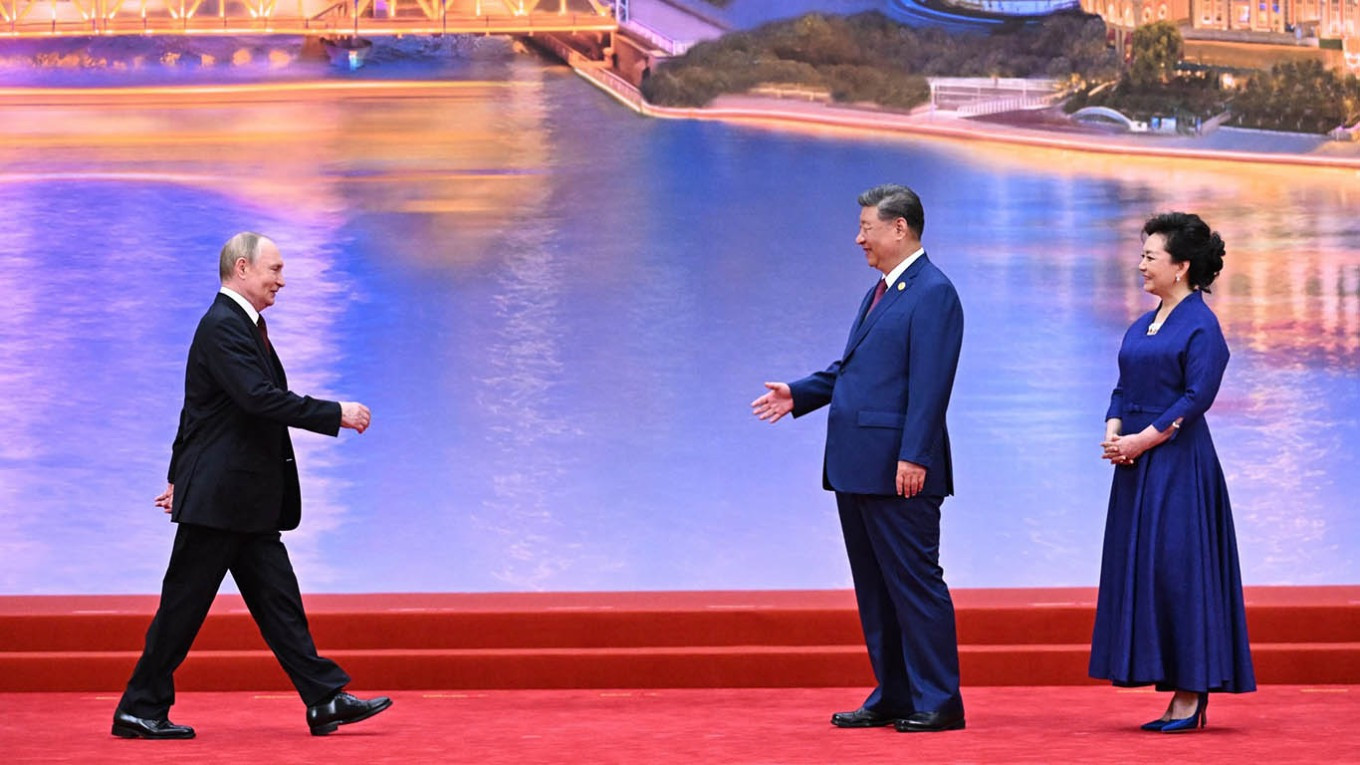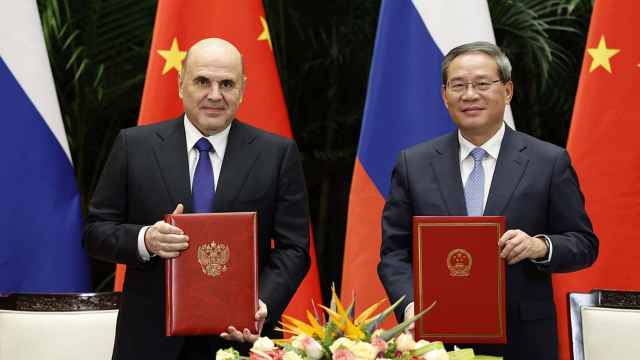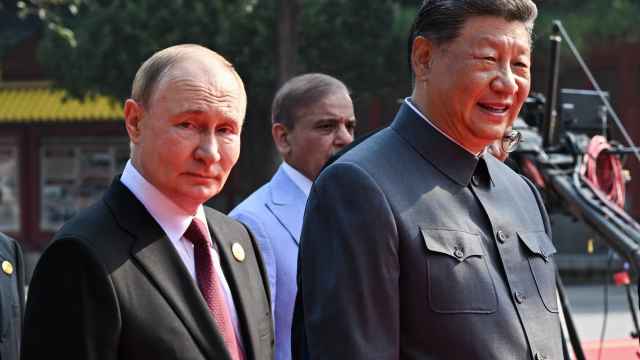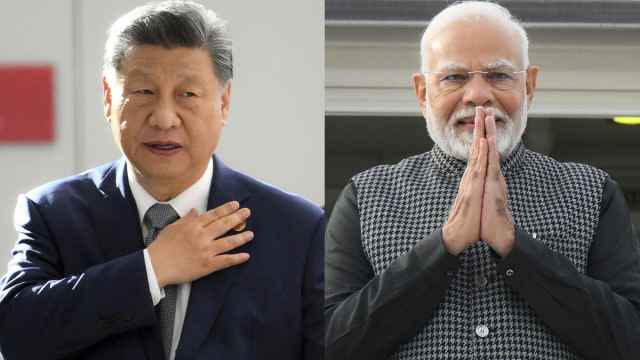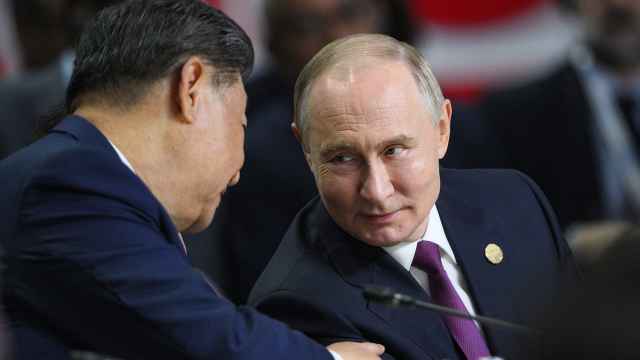On the eve of a parade in Beijing celebrating 80 years since the end of World War II, the Chinese Foreign Ministry announced that short-stay entry requirements for Russian citizens would be lifted unilaterally, effective Sept. 15. Russian President Vladimir Putin personally thanked President Xi Jinping for this “friendly act” and pledged that Moscow would respond in kind.
What is remarkable about this move is not just that it is a sign of deepening bonds between Beijing and Moscow, but that it underscores how Russia is the junior partner in the relationship.
Within 24 hours after the announcement that strict pre-travel protocols had been done away with, the number of seats booked on flights to mainland China doubled, Chinese hotel reservations went up by 7% and China-related search queries on Yandex exploded.
With much of the West now increasingly inaccessible due to logistical and administrative hurdles, Russian holidaymakers have begun to treasure the relative ease of movement they enjoy in the Global South far more than was the case before Putin launched his war. The European Union still prohibits Russian commercial carriers from using its airspace, while the consular fees and processing time for Schengen visa applications from Russia have more than doubled on top of imposing extra paperwork.
Thanks to intense lobbying efforts from high-profile opposition figures like Yulia Navalnaya and Vladimir Kara-Murza, the European Parliament decided against banning Russian tourists in its latest sanctions package. However, that does not mean it is off the table in the future.
At the same time, visiting the United States is just as cumbersome for the average Russian. Aside from direct routes being scrapped, Washington’s downgraded diplomatic presence and reduced embassy staff under the previous Biden administration means they have no choice but to procure American visas from either neighboring Kazakhstan or Poland — a country Russians are barred from entering for non-humanitarian purposes.
Beijing, in turn, is leveraging the travel woes Russian passport holders are now subjected to across the Euro-Atlantic space by dismantling the nightmarish bureaucracy and excessive red tape once synonymous with visiting the Middle Kingdom. It is no secret that China has been overplaying the visa-free card since the end of 2023, both in order to boost international arrivals and as a soft power tool. Russia had nonetheless been something of an afterthought amid its desperate post-pandemic tourism push up until this year’s Shanghai Cooperation Organization (SCO) Summit in Tianjin.
Prior to lifting visa requirements for ordinary Russians, China had already extended this privilege to the bulk of EU member states, the Gulf Cooperation Council sheikhdoms and ostensible adversaries like Japan and Australia, as well as six former Soviet republics: Armenia, Azerbaijan, Belarus, Georgia, Kazakhstan and Uzbekistan.
One potential reason for why Beijing has only just lifted these requirements is that they were aware of Moscow’s plans to invade Ukraine when they signed their “no-limits” partnership in January 2022.
Had China introduced a de facto open-door policy back then, its border towns in the Manchuria region would have borne the brunt of the September 2022 partial mobilization wave and future enlistment crackdowns. Fighting-age men from Russia’s Far East are disproportionately conscripted and sent off to the front lines against their will. Of greater concern to Beijing than harboring draft dodgers are the released Russian prisoners, PTSD-stricken off-duty soldiers, crypto scammers and intelligence operatives it risks attracting without rigorous background screening.
The buyer’s remorse experienced by hotspots such as Bali and Thailand serves as a cautionary tale, as some of the Russians they welcomed indulged in criminality and disturbed the public order.
That said, China has its reasons for intensifying cross-cultural engagement with the Russian Federation. Beyond the obsequious testimonials from first-time Western travelers that fill state-aligned news outlets, serious doubts remain as to whether the East Asian giant’s visa-waiving charm offensive is bearing fruit in terms of reciprocity.
Not a single OECD jurisdiction has facilitated inbound travel for Chinese nationals in return. Even the South Korean government, which recently abolished entry permits for accredited tour groups from China, has been petitioned by more than 52,000 inhabitants to reverse course.
The Kremlin, by contrast, is doubling down on its courtship of Chinese tourists, 1.2 million of whom were hosted by Russia last year alone, a fourfold increase from 2023. As per the Russian FSB’s border division, they accounted for almost half of the 228,000 foreign visitors in the first quarter of 2025.
Given the pace and scale at which wartime Russia’s hospitality landscape is being geared toward a Sino-centric clientele, a natural next step for local authorities would be to eradicate any outstanding mobility or social constraints faced by Chinese guests, including the $52 electronic visa and the acute shortage of Mandarin-speaking tour guides. However, by growing overly reliant on this particular market to keep its embattled tourism industry viable, Russia is condemning itself to deeper vassalage in an already lopsided relationship with China.
Putin and Xi have a shared interest in shaping the travel patterns of their overwhelmingly Atlanticist middle-class citizens. As the principal enabler of Russia’s ongoing aggression in Ukraine, Beijing realizes that its own people are not immune to the punitive measures imposed on Russian travellers by the G7 economies, as evidenced by sanctions against Iran and crackdowns on migration from India.
Make no mistake, China and Russia are out to replace the grandiose Lisbon to Vladivostok project envisioned during the pre-2014 heydays of Russo-EU ties with a "Moscow to Macau" trade and travel zone. As the two biggest countries on the Eurasian landmass, their liberalized visa regime is an opening salvo intended to pave the way for a new world order in which inhabitants of the so-called Global Majority are more than happy to explore each other’s nations instead of flocking to the West for business or pleasure. As a Sino-led intergovernmental bloc composed of 26 predominantly Central Asian, South Asian and Middle Eastern states, the SCO could emerge as the region’s answer to the Schengen Area.
A Message from The Moscow Times:
Dear readers,
We are facing unprecedented challenges. Russia's Prosecutor General's Office has designated The Moscow Times as an "undesirable" organization, criminalizing our work and putting our staff at risk of prosecution. This follows our earlier unjust labeling as a "foreign agent."
These actions are direct attempts to silence independent journalism in Russia. The authorities claim our work "discredits the decisions of the Russian leadership." We see things differently: we strive to provide accurate, unbiased reporting on Russia.
We, the journalists of The Moscow Times, refuse to be silenced. But to continue our work, we need your help.
Your support, no matter how small, makes a world of difference. If you can, please support us monthly starting from just $2. It's quick to set up, and every contribution makes a significant impact.
By supporting The Moscow Times, you're defending open, independent journalism in the face of repression. Thank you for standing with us.
Remind me later.


